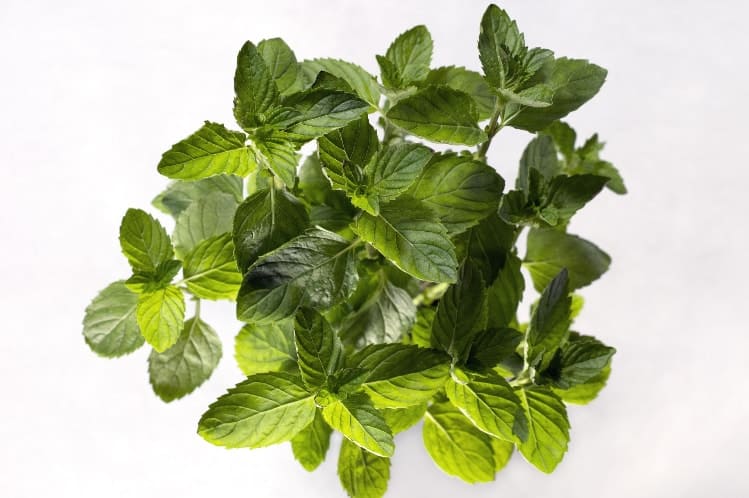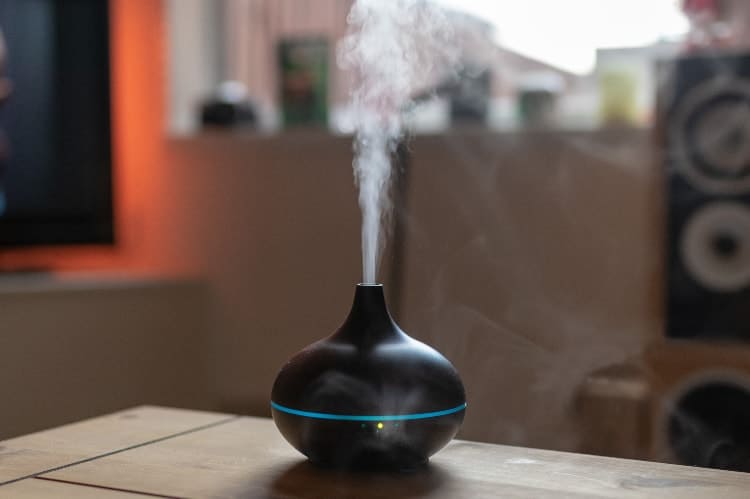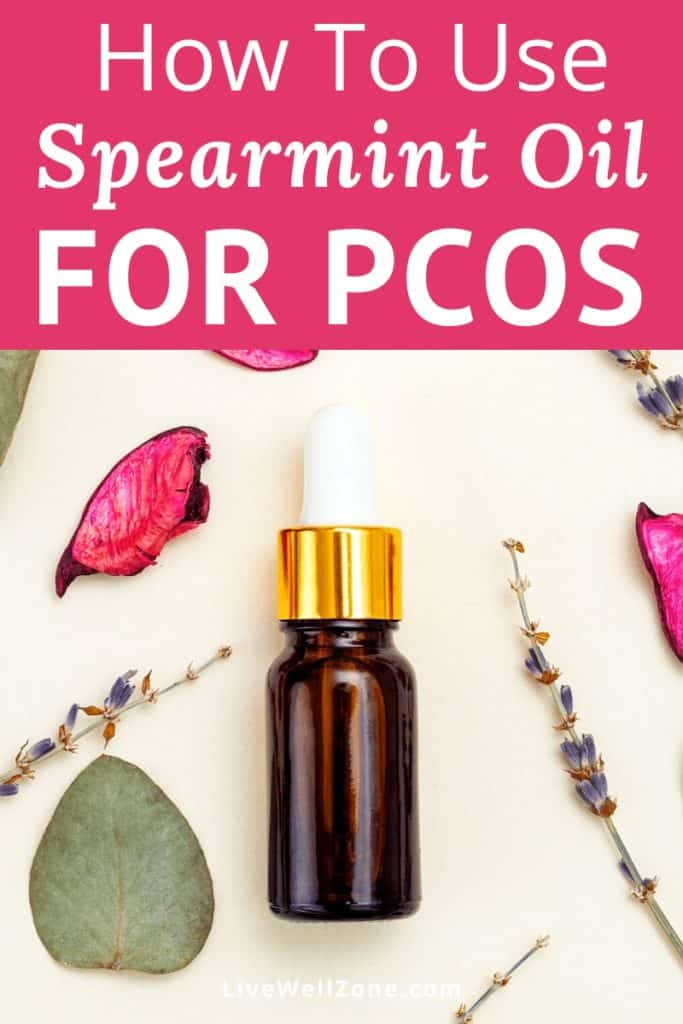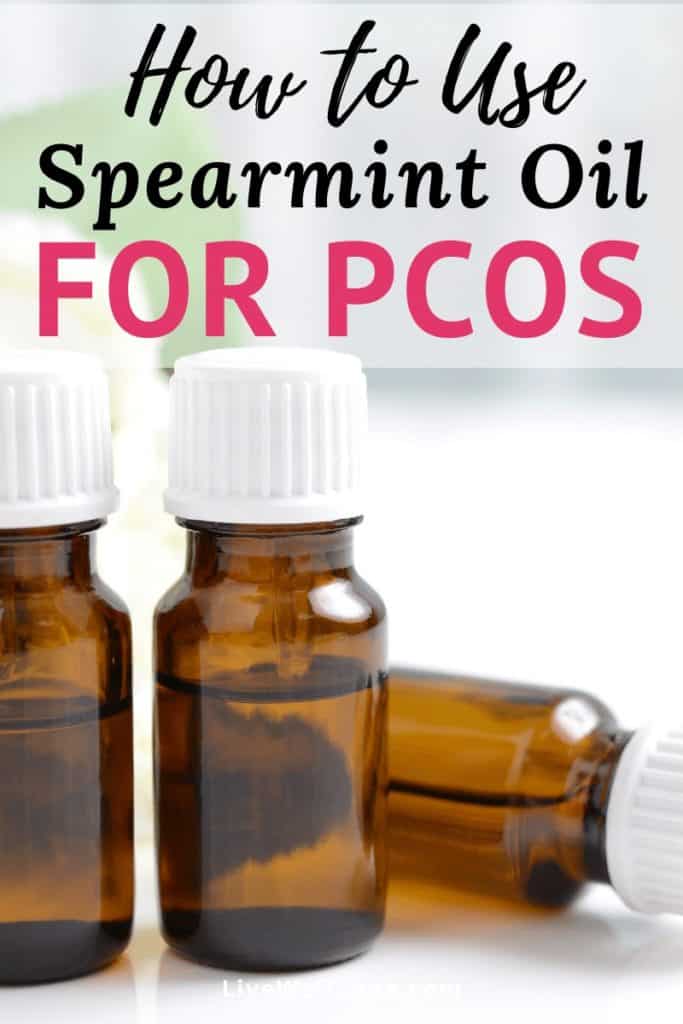
Spearmint tea has gained popularity as a possible remedy for PCOS symptoms. But what about the oil? Does it hold the same potential?
Well, in this post we’re going to look at what research – which is limited at the moment – has to say about spearmint oil and the role it might play in a PCOS care plan.
BENEFITS OF SPEARMINT OIL FOR PCOS
1. May Balance Hormones and Improve Hirsutism
Based on the results of a 2017 animal study, spearmint essential oil reduced:
- body weight.
- testosterone levels.
- ovarian cysts.
- degeneration of follicles.
The study also showed that spearmint oil increased Graafian follicles (which ultimately increases the number of viable eggs in the ovaries).
To achieve these results, PCOS was induced in rats and then those those rats were given spearmint essential oil (diluted in sesame oil) for 20 days.
While there are no human studies that confirm the same results in humans, this preliminary study gives us some insights on the properties of spearmint oil.
This study, together with a study that looked at the effects of spearmint tea in PCOS patients, indicates that the plant has anti-androgenic properties (source).
That said, more extensive research is required to determine if spearmint oil should in fact be used by humans seeking relief from hirsutism, acne and other symptoms linked to elevated androgen levels.
2. Supports Restful Sleep
Spearmint essential oil contains menthol, a compound that calms the nervous system.
More specifically, menthol acts on the receptors for GABA (gamma aminobutyric acid), a neurotransmitter with calming effects that can reduce anxiety and improve sleep.
In fact, many people take GABA supplements specifically to improve sleep. And many sleep meds also act on GABA.
So, if you’re experiencing sleep disruptions, spearmint oil could be a helpful natural ally.
3. Soothes Cramps and Inflammation

Just like its sister oil, peppermint, spearmint oil has anti-inflammatory properties that could ease menstrual cramps.
One way in which spearmint is thought to ease cramps is by acting on the neurotransmitter GABA (which we discussed in the previous section).
Some studies suggest that GABA is a natural pain reliever that also plays a role in cramps (1, 2).
Therefore, using spearmint oil for pcos can impact GABA activity, which then provides relief from period pain.
4. May Improve PMS Symptoms Like Nausea
If your PMS symptoms tend to include nausea and upset stomach, then spearmint oil might offer much needed relief.
Spearmint contains a compound called carvone that prevents contractions in the digestive tract.
In fact, one study showed that topical application of spearmint essential oil led to a significant reduction of nausea and vomiting in chemotherapy patients.
HOW TO USE SPEARMINT ESSENTIAL OIL FOR PCOS SYMPTOM RELIEF
1. Apply Topically
For nausea or upset stomach :
- add 3 drops spearmint oil to 2 teaspoons carrier oil (this is a 1% dilution).
- massage the blend on your belly.
For period cramps:
- Add 5 drops spearmint and 4 drops rosemary to 2 teaspoons carrier oil (this is a 3% dilution).
- Massage onto the lower belly and/or back.
If you find that the 3% dilution doesn’t work, you can increase to 4%, 5% or more based on these essential oil dilution guidelines.
2. Diffuse

You can diffuse a few drops of spearmint by itself or use it in a blend.
Here are a couple of ideas to get you started.
Calming and Hormone-Balancing Blend
3 drops spearmint
3 drops clary sage
Mood Boosting Blend
2 drops spearmint
2 drops lemongrass
2 drops grapefruit
3. Add to Bath Water
Spearmint is a cooling oil, so when using it in a bath it creates a different sensation from your standard warm bath.
This can be very soothing during times when the weather is very hot or your body is simply running hotter than usual.
Just add 3 drops of spearmint to 2 teaspoons of liquid castile soap or a light carrier oil (like fractionated coconut oil).
Add the mix to your bath water and enjoy the cooling soak.
4. Seek Expert Help With Internal Use
As we saw earlier, internal use of spearmint essential oil has been shown to be effective for PCOS-induced rats.
And spearmint oil is on the FDA’s GRAS list (Generally Regarded As Safe), which means the FDA considers it safe for internal use.
That said, if you’d like to use spearmint oil internally for PCOS, it must be diluted correctly and the dosage must be tailored to your needs.
I recommend working with a certified aromatherapist who can guide you on how to consume it safely.
For education on this topic, here’s an article from the New York Institute of Aromatic Studies on the internal use of essential oils.
RELATED QUESTIONS
What tea is best for PCOS?
Due to its ability to lower androgens, reduce body weight and reduce hirsutism, spearmint tea is one of the best teas for PCOS.
In addition ginger, dandelion, red raspberry leaf, chamomile and some adaptogenic teas are also good for PCOS.
How do I get rid of PCOS completely?
In order to beat PCOS, you need a holistic approach that focuses on nutrient-dense, anti-inflammatory and hormone-balancing foods/herbs. In particular you want to focus on foods that regulate insulin and all the sex hormones.
For more tips read this guide on how to get relief from PCOS symptoms naturally.
Which exercise is best for PCOS?
Since inflammation is one of the underlying causes of PCOS, it’s important to do exercises that won’t add too much stress to your body (since stress can worsen the inflammatory response).
This means low-intensity activities like walking, gentle hikes, yoga or even, a gentle dance class are all good options.


CONCLUSION: IS SPEARMINT OIL GOOD FOR PCOS?
Research shows that spearmint oil has anti-inflammatory properties and potential hormone-regulating properties.
As a result, it may help as a natural remedy for relieving period pain and it might be beneficial for androgen-related symptoms like hirsutism (pending more reliable human studies).
Related Posts:
Adaptogens For PCOS: Why You Need Them and Which Ones To Use
How to Make a Fertility Smoothie For PCOS: A Simple Guide
How to Use Ginger for PCOS: 5 Tips You Probably Don’t Know
Marjoram For PCOS: Tea & Essential Oil Benefits (+ How To Use)


